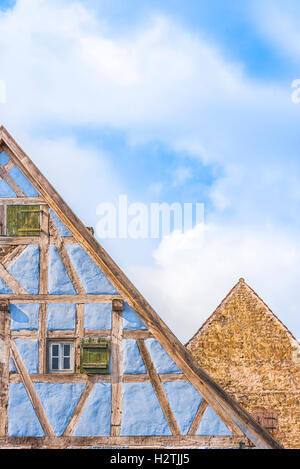

A series of ornamental timber gables, from existing examples in England and France of the 16th Century. ↑ Roof damage by hurricane force winds in Bermuda The Fabian Experience, September 2003, page 5, Mark Rowe, Department of Environmental Protection, Government of Bermuda.Handbook of Technical Terms Used in Architecture and Building and Their Allied Trades and Subjects. The Seven Lamps of Architecture, John Ruskin's opinion on truth in architecture.The House of the Seven Gables, an 1851 novel by Nathaniel Hawthorne.Anne of Green Gables, a 1908 novel by Canadian author Lucy Maud Montgomery, set in Canada.Winds blowing against the gable end can exert tremendous pressure, both on the gable and on the roof edges where they overhang it, causing the roof to peel off and the gable to cave in.

The gable end roof is a poor design for hurricane or tornado-prone regions. The intention behind the wimperg was the perception of increased height. Let us, therefore, take a look at how a gable roof is created step by step. Aesthetics, cultural influences and the need for increased. Correct workmanship of the roof is a guarantee of long-term use of the house without the risk of leaks or the appearance of moisture. The gable-end wall of a building either terminates below the roof or above the roof, in which case it creates a parapet gable. Wimpergs often had crockets or other decorative elements in the Gothic style. The roof consists of two main parts: load-bearing structure, which forms its skeleton and covering, i.e. It was a typical element in Gothic architecture, especially in cathedral architecture.

#Sharp stepped gable roofs windows
Main page: Engineering:WimpergĪ Wimperg, in German and Dutch, is a Gothic ornamental gable with tracery over windows or portals, which were often accompanied by pinnacles. The opposite or inverted form of a gable roof is a V-roof or butterfly roof.Īmiens Cathedral in northern France, showing three portals with wimperg and pinnacles and a rose window. Sharp gable roofs are a characteristic of the Gothic and classical Greek styles of architecture. Gable style is also used in the design of fabric structures, with varying degree sloped roofs, dependent on how much snowfall is expected. But unlike Classical structures, which operate through trabeation, the gable ends of many buildings are actually bearing-wall structures. Gable ends of more recent buildings are often treated in the same way as the Classic pediment form. One common type of roof with gables, the gable roof, is named after its prominent gables.Ī parapet made of a series of curves ( Dutch gable) or horizontal steps ( crow-stepped gable) may hide the diagonal lines of the roof. Hip roofs are popular on church steeples, where they typically have a high pitch. Some types of roof do not have a gable (for example hip roofs do not). A hip roof is a roof where all four sides of the roof slope downwards from the peak. The term gable wall or gable end more commonly refers to the entire wall, including the gable and the wall below it. The shape of the gable and how it is detailed depends on the structural system used, which reflects climate, material availability, and aesthetic concerns. John's Place between Sixth and Seventh Avenue in the Park Slope neighborhood of Brooklyn, New York City.Ī gable is the generally triangular portion of a wall between the edges of intersecting roof pitches. The added number of seams also makes hip roofs more prone to leak development, mostly due to poor installation.Decorative gable roof at 176–178 St.

To build and shingle a hip roof, costs can range from $33,600 to $67,200, whereas gable roofs are between $24,000 and $48,000. Cost: The main disadvantage of a hip roof design is its cost, which can be 35 to 40 percent higher than a gable roof.The Spruce Home Improvement Review Board.


 0 kommentar(er)
0 kommentar(er)
